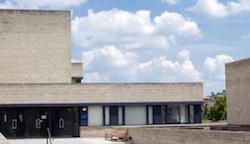Student challenges to degree classification, and examiners’ academic freedom – redux
 No sooner had I published yesterday’s post on student challenges to degree classification, and examiners’ academic freedom, than Afua Hirsh blogged that it’s not just law students who are learning how to sue. Against the background of the QUB case which I discussed in that post, she gave many other examples of cases in which students sued their universities because they had performed poorly in their degrees. (Indeed, yet another may be brewing here). In many of the cases Afua discusses, the students were successful in their claims. But probably the most important case she discusses concerned a Belgian DPhil student who claimed £3m from Oxford University for failing his thesis. George Van Mellaert complained about the examiners and about the university’s procedures. Unlike many of the other cases to which Afua referred, this case did not have a happy outcome for the student. As she said:
No sooner had I published yesterday’s post on student challenges to degree classification, and examiners’ academic freedom, than Afua Hirsh blogged that it’s not just law students who are learning how to sue. Against the background of the QUB case which I discussed in that post, she gave many other examples of cases in which students sued their universities because they had performed poorly in their degrees. (Indeed, yet another may be brewing here). In many of the cases Afua discusses, the students were successful in their claims. But probably the most important case she discusses concerned a Belgian DPhil student who claimed £3m from Oxford University for failing his thesis. George Van Mellaert complained about the examiners and about the university’s procedures. Unlike many of the other cases to which Afua referred, this case did not have a happy outcome for the student. As she said:
The court was less impressed with this claim, stating that “the claimant’s thesis is a matter of academic judgment with which it would be inappropriate for the court to interfere”.
Almost as soon as I had finished reading her article, I received an email from Martin George, with the full text of the decision in George van Mellaert v Oxford University [2006] EWHC 1565 (QB) (29 June 2006).…


 I’m sorry not to have been able to acknowledge the celebration of
I’m sorry not to have been able to acknowledge the celebration of 


